m-Toluidine
Synonym(s):3-Methylaniline;3-Methylaniline, 3-Aminotoluene;m-Toluidine
- CAS NO.:108-44-1
- Empirical Formula: C7H9N
- Molecular Weight: 107.15
- MDL number: MFCD00007808
- EINECS: 203-583-1
- SAFETY DATA SHEET (SDS)
- Update Date: 2025-09-25 17:15:13

What is m-Toluidine?
Chemical properties
Colorless liquid. Slightly soluble in water; soluble in alcohol or ether. Combustible.
The Uses of m-Toluidine
m-Toluidine is an intermediate in the manu facture of dyes and other chemicals.
The Uses of m-Toluidine
Dyes, manufacture of organic chemicals.
The Uses of m-Toluidine
m-Toluidine is used in the manufacture of organic chemicals. It is also used in manufacture of various dyes and pigments, photo chemicals, pharmaceutical intermediates.antioxidants, curing agent, accelerator for polymer and rubber industry.
Synthesis Reference(s)
Synthetic Communications, 11, p. 925, 1981 DOI: 10.1080/00397918108065749
General Description
A clear colorless liquid. Flash point below 200°F. Vapors heavier than air. Toxic by inhalation, ingestion, and skin absorption in high concentrations or under prolonged exposures. Used in the manufacture of organic chemicals. Density about 8 lb / gal.
Reactivity Profile
m-Toluidine neutralizes acids in exothermic reactions to form salts plus water. May be incompatible with isocyanates, halogenated organics, peroxides, phenols (acidic), epoxides, anhydrides, and acid halides. May generate hydrogen, a flammable gas, in combination with strong reducing agents such as hydrides. Can react vigorously with oxidizing reagents. Emits toxic fumes of oxides of nitrogen when heated to decomposition [Lewis, 3rd ed., 1993, p. 1253].
Health Hazard
Absorption of toxic quantities by any route causes cyanosis (blue discoloroation of lips, nails, skin); nausea, vomiting, and coma may follow. Repeated inhalation of low concentrations may cause pallor, low-grade secondary anemia, fatigability, and loss of appetite. Contact with eyes causes irritation.
Health Hazard
The toxicity of m-toluidine is similar to thatof o-toluidine. The exposure routes are ingestion, inhalation, and absorption through skin.The toxic effects are methemoglobinemia,anemia, and hematuria. It metabolizes to 2-amino-4-methylphenol, the major componentexcreted in urine. Inhalation of 40-ppm concentration for an hour produced severe poi soning in humans. The oral LD50 value inmice is 740 mg/kg, which is in a range com parable to its o- and p-isomers.
The pure liquid is a mild to moderate skinirritant. Its irritating effect on the eyes ofrabbits was strong.
m-Toluidine did not induce any carcino genicity in test subjects. This finding is incontrast to its ortho-isomer. Nor did it produce any mutagenic activity.
Fire Hazard
Special Hazards of Combustion Products: Toxic oxides of nitrogen and flammable vapors may form in fire.
Flammability and Explosibility
Non flammable
Safety Profile
Poison by ingestion and intraperitoneal routes, A skin and eye irritant. Flammable when exposed to heat or flame. Can react vigorously on contact with oxidizing materials. To fight fire, use foam, CO2, dry chemical. When heated to decomposition it emits hghly toxic fumes of NOx. See also ANILINE and o-TOLUIDINE.
Carcinogenicity
In an 18-month carcinogenicity diet evaluation in maleCD rats (8000 ppm for 3 months, and then 4000 ppm for additional 15 months; or 16,000 ppm for 3 months, and then 8000 for additional 15 months), and male and female CD-1 mice (16,000 ppm for 5 months, and then 4000 ppm in males and 8000 ppm in females for additional 13 months; or 32,000 ppm in both sexes for 5 months, and then 8000 ppm in males and 16,000 ppm in females for additional 13 months), there was no evidence of a significant increase of incidence of any kind of tumor in the rats, and only a significant increase in liver tumors in male mice.
Purification Methods
It can be purified as for aniline. Twice-distilled, m-toluidine is converted to the hydrochloride using a slight excess of HCl, and the salt is fractionally crystallised from 25% EtOH (five times), and from distilled water (twice), rejecting, in each case, the first material that crystallised out. The amine is regenerated and distilled as for o-toluidine. The benzoyl derivative has m 125o (from EtOH). [Berliner & May J Am Chem Soc 49 1007 1927, Beilstein 12 H 853, 12 I 397, 12 II 463, 12 III 1949, 12 IV 1813.]
Properties of m-Toluidine
| Melting point: | -30 °C |
| Boiling point: | 203-204 °C(lit.) |
| Density | 0.999 g/mL at 25 °C(lit.) |
| vapor pressure | 0.3 hPa (20 °C) |
| refractive index | n |
| Flash point: | 186 °F |
| storage temp. | Store below +30°C. |
| solubility | 0.2 g/100 mL (20°C) |
| form | Crystalline Solid or Liquid |
| pka | 4.73(at 25℃) |
| color | White |
| PH | 7 (H2O, 20℃) |
| Odor | aromatic aniline-like odor |
| Water Solubility | 0.2 g/100 mL (20 ºC) |
| Merck | 14,9536 |
| BRN | 635944 |
| Dielectric constant | 5.9500000000000002 |
| Exposure limits | TLV-TWA skin 2-ppm (~9 mg/m3) (ACGIH). |
| CAS DataBase Reference | 108-44-1(CAS DataBase Reference) |
| NIST Chemistry Reference | Benzenamine, 3-methyl-(108-44-1) |
| EPA Substance Registry System | m-Toluidine (108-44-1) |
Safety information for m-Toluidine
| Signal word | Danger |
| Pictogram(s) |
 Skull and Crossbones Acute Toxicity GHS06  Health Hazard GHS08  Environment GHS09 |
| GHS Hazard Statements |
H317:Sensitisation, Skin H373:Specific target organ toxicity, repeated exposure H410:Hazardous to the aquatic environment, long-term hazard |
| Precautionary Statement Codes |
P273:Avoid release to the environment. P280:Wear protective gloves/protective clothing/eye protection/face protection. P314:Get medical advice/attention if you feel unwell. P301+P310:IF SWALLOWED: Immediately call a POISON CENTER or doctor/physician. |
Computed Descriptors for m-Toluidine
| InChIKey | JJYPMNFTHPTTDI-UHFFFAOYSA-N |
m-Toluidine manufacturer
Kavya Pharma
Triveni Interchem Private Limited (Group Of Triveni Chemicals)
New Products
4,4-Difluoropiperidine hydrochloride tert-butyl 9-methoxy-3-azaspiro[5.5]undecane-3-carboxylate Indole Methyl Resin N-Isopropylurea N,N-Dicyclohexylcarbodiimide(DCC) MELDRUMS ACID 5-METHYLISOXAZOLE-4-CARBOXYLIC ACID Magnessium Bis glycinate Zinc ascorbate 1-bromo-2-butyne 2-acetamidophenol 9(10H)-anthracenone Erythrosin B, 4-Piperidinopiperidine 2-((4-morpholinophenylamino) (methylthio) methylene) malononitrile 2,4-dihydroxybenzaldehyde 3-(4-morpholinophenylamino)-5-amino-1H-pyrazole-4-carbonitrile Methyl 2-methylquinoline-6-carboxylate 2,6-dichloro-4-nitropyridine 4-Bromo-2-chlorobenzonitrile 2-(benzylamino)acetic acid hydrochloride 4-(tert-Butoxycarbonylamino)but- 2-ynoic acid 3,4-dihydro-2H-benzo[b][1,4]dioxepine 1-Phenyl-1-cycloprppanecarboxylicacidRelated products of tetrahydrofuran




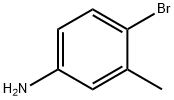
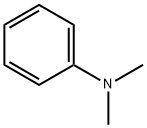
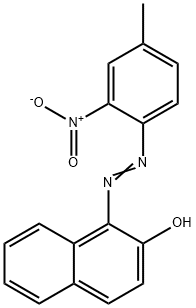

You may like
-
 m-Toluidine 98%View Details
m-Toluidine 98%View Details -
 m-Toluidine 98%View Details
m-Toluidine 98%View Details -
 m-Toluidine CAS 108-44-1View Details
m-Toluidine CAS 108-44-1View Details
108-44-1 -
 m-Toluidine 99% CAS 108-44-1View Details
m-Toluidine 99% CAS 108-44-1View Details
108-44-1 -
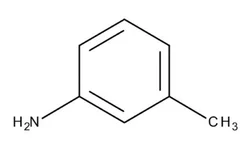 Meta Toluidine Cas 108 44 1, Liquid, 200 ltrView Details
Meta Toluidine Cas 108 44 1, Liquid, 200 ltrView Details
108-44-1 -
 Liquid M-Toluidine, Packaging Type: Fiber Drum, 108-44-1View Details
Liquid M-Toluidine, Packaging Type: Fiber Drum, 108-44-1View Details
108-44-1 -
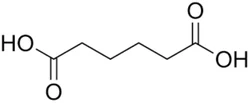 Meta Toluidine (CAS NO- 108-44-1)View Details
Meta Toluidine (CAS NO- 108-44-1)View Details
108-44-1 -
 Meta Toluidine, For Industrial, LiquidView Details
Meta Toluidine, For Industrial, LiquidView Details
108-44-1
